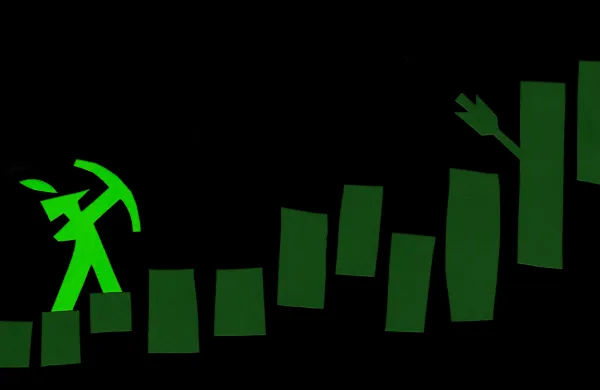Humans are on high alert for signs of pessimism.
When CEOs and other top executives start speaking more negatively during conference calls than they had previously, the company’s earnings tend to subsequently decrease, according to research published in the CFA Institute Financial Analysts Journal. As a result, a trading strategy based on these negative signals generates outsized returns.
Executives’ speaking less negatively during conference calls, however, is only a weak predictor of higher future earnings.
The authors of the research also found that analysts generally lower their earnings forecasts after conference calls when management used more dour words, but the dispersion and uncertainty between all of these forecasts became wider. That’s where investors can benefit. Market prices move, but not sufficiently.
“Firms underperform relative to similar firms, first immediately and then with a drift similar to the well-established post earnings announcement drift; suggesting that analysts’ response in their forecasts is insufficient,” wrote the report’s authors Marina Druz, Ivan Petzev, Alexander Wagner, and Richard Zeckhauser.
“These findings hold even after controlling for fundamentals and other negativity in press releases and analysts’ questions,” wrote the researchers, who analyzed 100,000 conference calls that accompanied earnings releases from 2003 to 2016. Analysts and investors essentially under-react to negative changes in tone.
Alexander Wagner, associate professor of finance at the University of Zurich, told Institutional Investor that he and his co-authors wanted to know what was behind the short-term market reaction to management’s tone changes during a call.
“Is it purely emotional, in that people don’t like negativity, and prefer positive talk? It could be that the negative market response to a relatively negative call is simply emotional,” said Wagner. “Or is fundamental information conveyed? We wanted to know if the market move was driven by something fundamental about the future of the company or whether it was purely psychological” he added.
The researchers found that the tone changes did reveal changes in fundamentals about the company.
“That explains why the stock market responds to these calls. The market in that sense correctly understands that this linguistic tone actually says something of fundamental value,” said Wagner.
“After such a call, the analysts bring down forecasts. But on average it’s too small relative to what the negativity portends,” he said.
The research on management's use of bleak language seems particularly relevant given the recent selloff in markets as a result of the spread of the novel coronavirus globally.
[II Deep Dive: ‘No One Has Dealt With Something Like This Since 9/11’]
In a follow-up email exchange on Tuesday, Wagner said, “The fraction of conference calls that deal with coronavirus has been massively increasing, which shows how important this source of information is for investors.”
He added that the first U.S. conference call that discussed the virus was United Airlines on January 22, shortly after the announcement that human-to-human transmission was possible and after the first situation report by the World Health Organization on January 20.
Between January 20 and February 24, about 30 percent of calls held on a given day included a discussion of the virus. Between February 23, when Italy instituted a strict lockdown, and March 6, that increased to about 50 percent of calls including a discussion of the virus and its implications, he explained.
Although Wagner has not yet completed a formal analysis of the tone on these calls, he said, “it is clear from an informal review that the language managers adopt indicates a very high level of uncertainty. ‘Uncertainty’ is something different than just negative tone, though the market obviously generally does not like uncertainty.”







